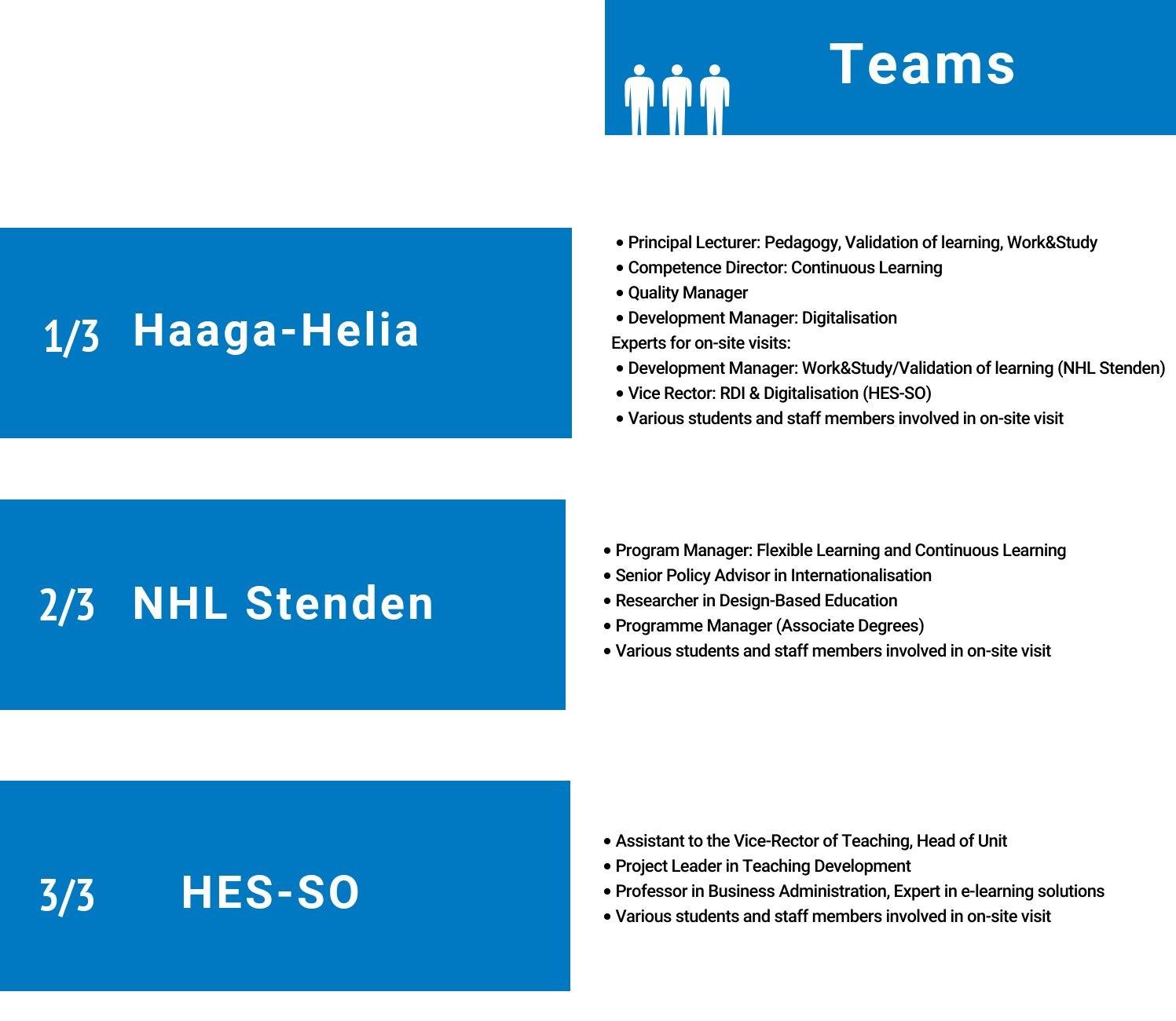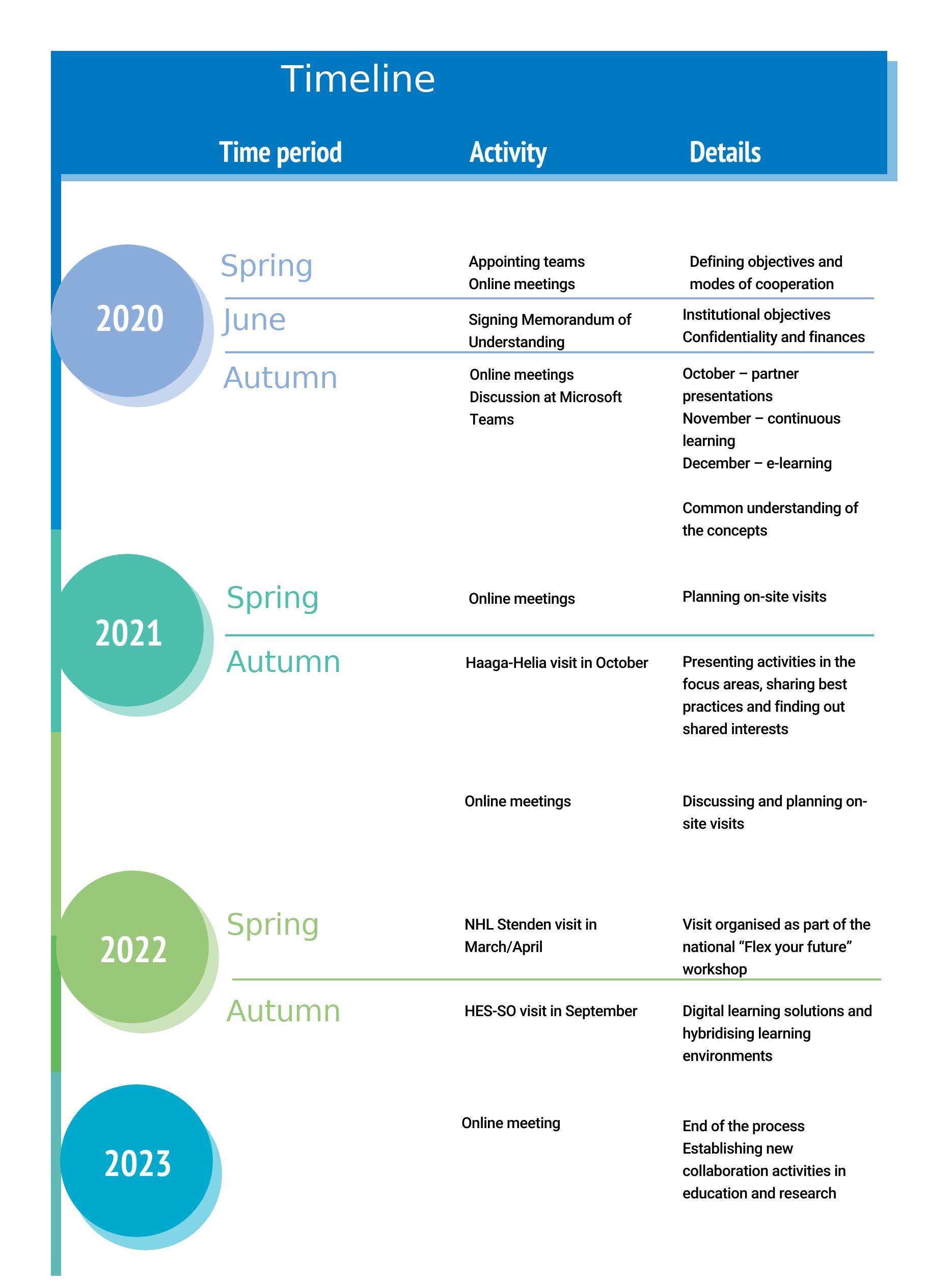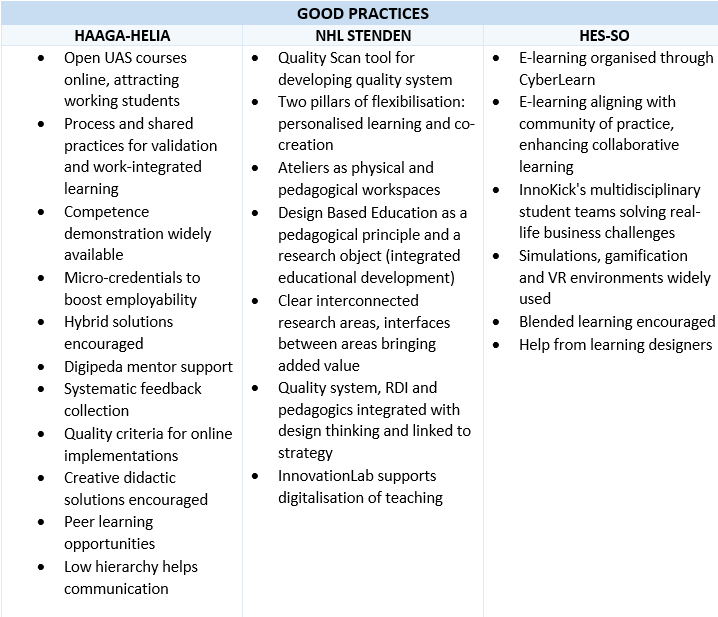Starting the process and choosing partners
The process started as a mission set by the Management Group, to establish a co-creational dimension of institutional learning with selected international partners. Therefore, we decided to incorporate a process of international benchlearning in the context of the forthcoming quality audit. Our Principal Lecturer responsible for Validation of Learning, together with our Competence Director of Continuous Learning were assigned to plan and implement the process and to assemble a group of experts for the process.
The Quality Assurance Services recruited international partners, with the help of experts in International Affairs. NHL Stenden and HES-SO were chosen for the process due to their long-standing partnerships and corresponding profiles with Haaga-Helia.
NHL Stenden UAS in the Netherlands has developed continuous learning to combine work and study, and to insightfully implement design thinking in education. Moreover, it had expressed interest in RDI collaboration on relevant topics.
HES-SO in Switzerland has created an interesting, extensive digital strategy (2021-24) and is developing digital offering through a specific CyberLearn E-learning Center. Expertise of HES-SO was found valuable also in the field of didactic solutions in e-learning.

Picture 30. Participants in the benchlearning
Focus on continuous learning and e-learning
The benchlearning process was positioned in two key fields of development: continuous learning and e-learning that also entwine, in view of increasing demands of flexibility and affordability of education. Our objectives of benchlearning were defined as follows:
- to fulfil the expectations of the national audit, with an international dimension of co-creational learning and sharing best practices
- to gain insights into continuous learning, with emphasis on aspects of virtual and hybrid implementations and the overarching objective of enhancing e-learning opportunities
- to implement these insights into strategy and operations of Haaga-Helia
- to enhance research cooperation with selected partners on areas of shared interests.
The benchlearning process was initiated in spring 2020 and it will continue until the quality audit and further. In addition to the two main topics, cooperation in RDI and mobility is discussed throughout the process.

Picture 31. Progress of the benchlearning
Results
The choice of focus areas was successful as the topics selected prior to the pandemic became even more relevant during it. The project has enhanced inter-institutional cooperation and sharing best practices, with ideas for future research collaboration. Observations available at this stage are compiled in the table below, with the overarching observation that similarities outnumber dissimilarities in the three institutions, and that the pandemic has made endeavours to forward continuous learning and e-learning even more important than before. Benchlearning has been a rewarding learning process, even though the travel restrictions forced us to find online solutions for exchanges. Our team members have published their positive insights into the benchlearning process.


Audit team’s feedback
Continuous learning is a strategic goal of Haaga-Helia
Continuous learning is a strategic field for Haaga-Helia. According to the self-assessment report, Haaga-Helia aims at students to take ownership of their learning paths while teachers serve as instructors and facilitators, contributing to the region through continuous learning and enhanced employability. The interviews confirmed that the new module structure enables flexible study paths, allowing for the creation of new degree programs or program components tailored to new target groups without the need to alter Haaga-Helia’s operating license. Digitalization is leveraged in teaching and guidance, such as through Work&Study pathways or Open UAS, to benefit all potential groups rather than just those seeking to increase their educational level. The auditors encourage Haaga-Helia to further develop different forms of continuous learning on a more systematic basis to foster lifelong learning, i.e., in specialisation studies and other further training. The audit team see the concept of RPL as well as the Work&Study model as a promising example of how to establish continuous learning as a regular learning experience for those who want to gain further competences and knowledge in a specific field. The Work&Study model widens the range and diversity of education.